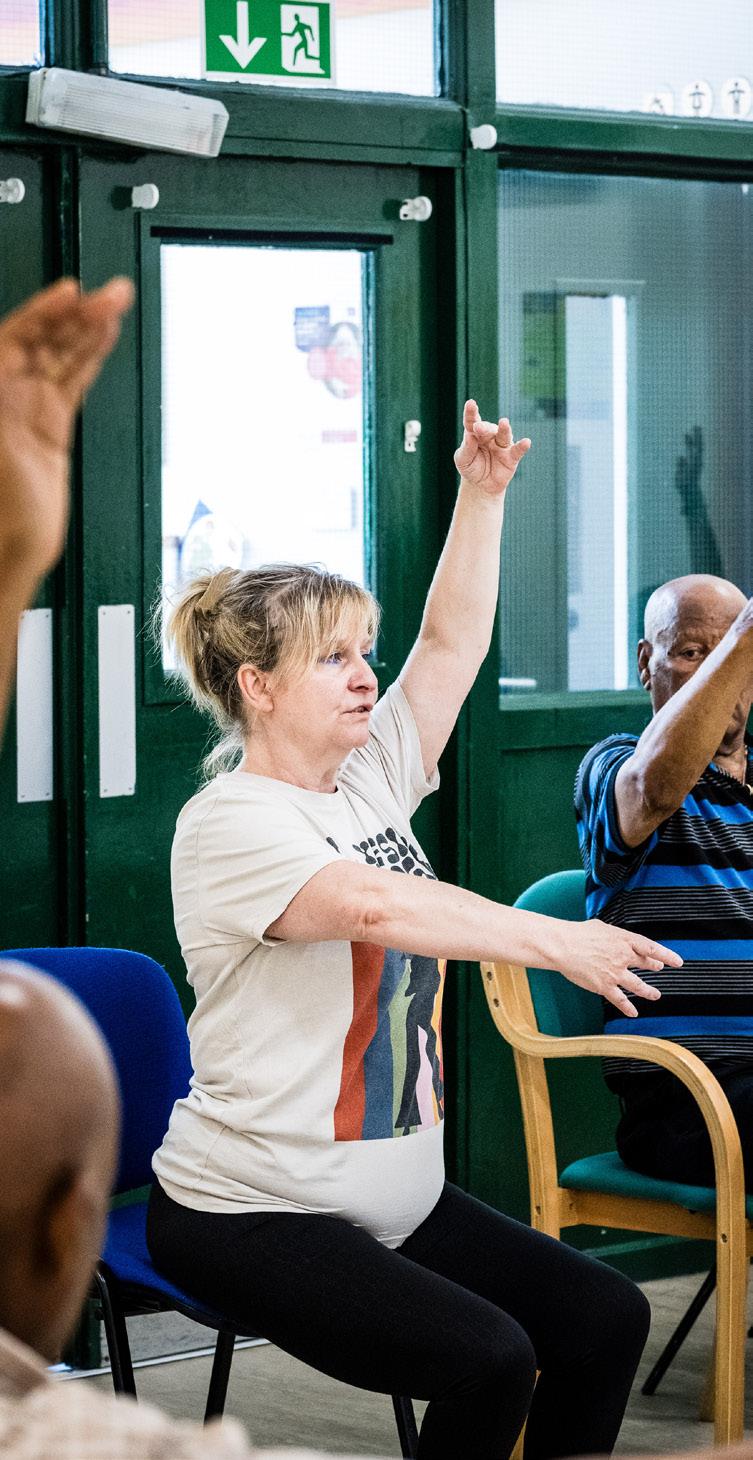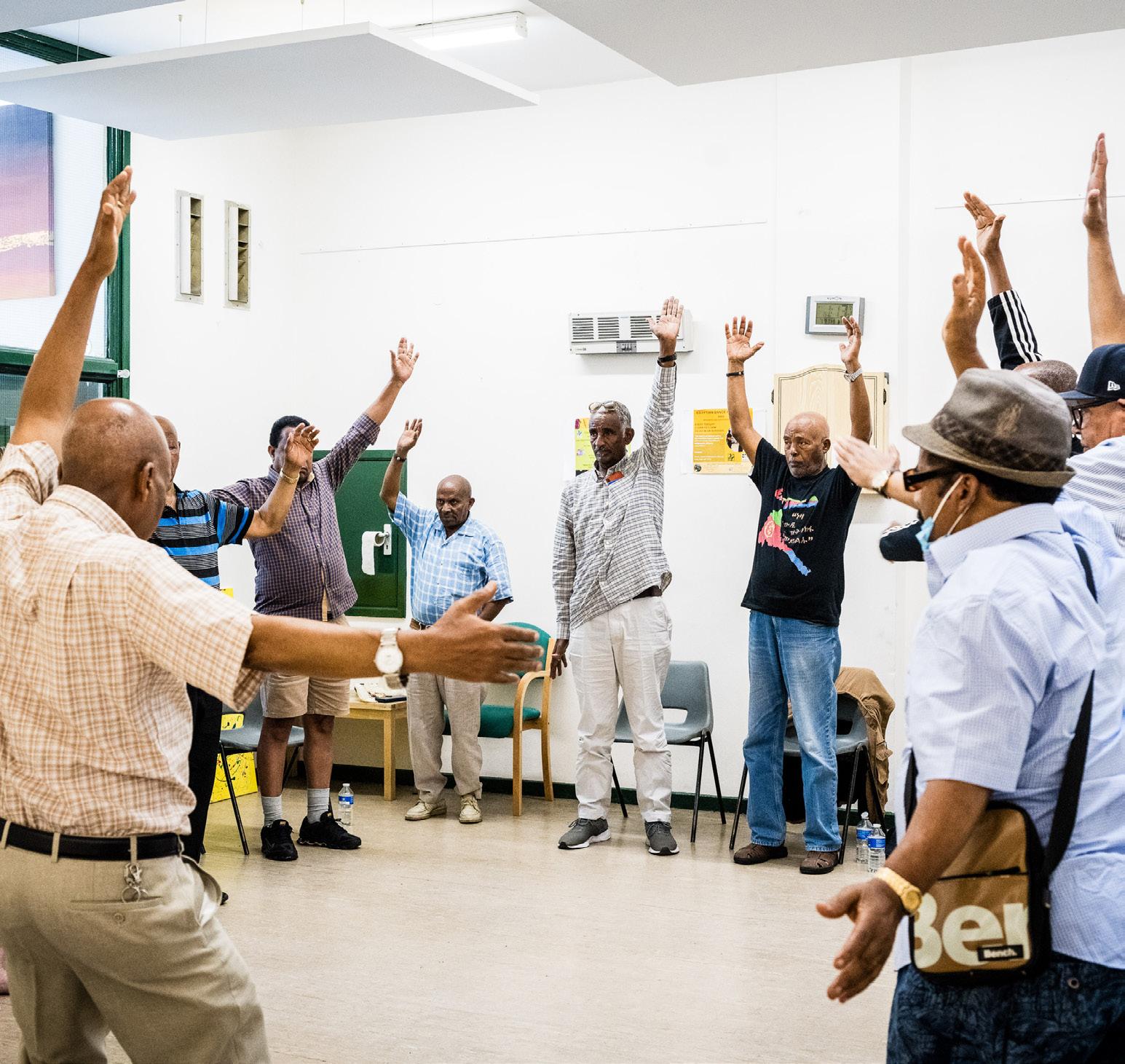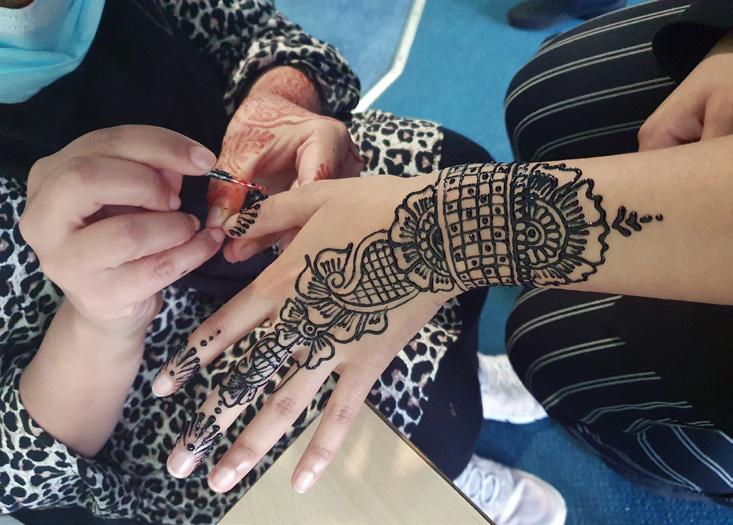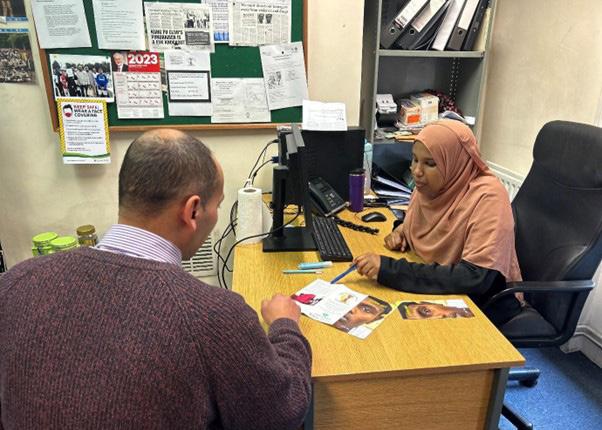
4 minute read
Better together
Our volunteers and community organisations make a huge difference to people’s lives in Islington: from offering reading and writing support to helping survivors of domestic abuse. We find out more about their work, and how the council supports them
There are more than 1,500 charities in Islington – from small, grassroots organisations supporting specific communities, to branches of multi-national corporations. Each plays a vital role in helping achieve a more equal Islington for all; one in which everyone can thrive.
Between Covid and the cost-ofliving crisis, however, the last few years have been tough. There are more people who need help than ever. The council has been working closely with community partners to support as many people as possible. “Despite cuts, the council has committed £2.7million a year to supporting voluntary and community sector (VCS) organisations,” says Pam Aristokle, who works for the council’s community partnerships team. “That’s £10.8million over our four-year grant programme.” The first round of funding ran from 2020–2024; successful applicants for the next round (2024–2028) will be announced in December.
We talk to some of the previously funded organisations to find out more about how the grants are making a difference.
Kristyna Brozova, co-ordinator at Islington BAMER Advice Alliance (IBAA)
IBAA was set up to bring community groups together and create an advice network. The idea was that together, they’ll have a bigger voice when it comes to getting funding and policy advocacy. It also takes the administrative burden off the people who are delivering frontline services.
We focus on very marginalised subgroups of the Black, Asian Minority Ethnic and Refugee community: people who are often living in disadvantaged parts of the borough and who might be illiterate or have lower levels of education, so there are a lot of vulnerabilities and specific support needs.
Many of the cases we see are very complex, so sometimes it’s not just about providing advice, but keeping people on the system until we’ve made sure all their needs are met. Often people are not comfortable going to bigger organisations or the council. Here, they can speak to somebody in their mother tongue and explain exactly what they need, in confidence.

It’s great to work in Islington –all the organisations go above and beyond, and the council is actually interested and involved in what we do. You can see that they really care. The funding we received from them is the spine of everything – we wouldn’t be able to do anything without it! It pays for two days of an advice worker’s time at five different organisations, as well as two days of the IBAA co-ordinator’s salary. It’s the lifeblood of IBAA.
Catherine
Maa Shanti was founded by three women in the South Asian community who came together because they were aware there were many South Asian women without support. It quickly became clear that they were on their own because they were survivors of domestic abuse.

offer workshops around topics such as financial empowerment, healthy relationships and parenting skills, but also things like finding volunteering opportunities and vocabulary skills. We also run health and wellbeing activities, like yoga and mindfulness classes, as well as support groups.
The final string to our bow is social activities. We’ve gone on trips to the seaside in Southend, put on a picnic in Hyde Park and organised visits to museums
So, a few people from the Somali community came together to discuss what the asylum seekers and refugees were going through and agreed to set up the ISC.
In the beginning, there was no office space, nothing. They used to come to the Town Hall and use the phone to make calls for clients. In 1992, we got a grant from the council and moved into a space at Manor Gardens.
What we do and how we respond
to issues comes from our clients. One thing that’s clear is that they really value the advocacy that we offer, so help with issues like accessing benefits; rights, in terms of child contact with an ex-partner; finance; housing – a number of support needs. They’re also looking for ways to improve their own circumstances, so we and Freightliners City Farm. It’s a way of building confidence, and showing mums that there are low-cost activities available . We also do Eid, Diwali and Christmas parties. It’s social, but it also provides mums with a hot meal.
The funding from the council directly supports women who live in Islington. There’s a high population of Bengali women here and it’s helped us to tailor our offering for them. We’ve also become more focused on the family as a whole, as often women’s priorities are around their children. We’re really rooted here and it’s vital that we have a presence on the ground.
Yussuf Ahmed, co-ordinator of Islington Somali Community (ISC)
The ISC was set up in the 1990s, when a huge influx of Somali refugees came to this country. There were very few Somalis in the borough and people had all kinds of issues – with housing, education, immigration, health.

Since then, we’ve set up after school clubs, youth projects, crisis intervention. We also have staff who can help deal with the emotional impacts. The demand for these things is now higher than ever.
The council supported us from the start. Their funding is the base of everything – without it, we would have closed long ago. These are tough times, but everyone is trying their best to understand residents’ issues. Islington is exceptional in the way they care about residents: the need is greater than the council can meet alone, but the practical, moral and emotional support we and our clients get from them is invaluable.
Want to volunteer? Please get in contact with the organisations directly. You can call IBAA on 020 7697 4101; Maa Shanti on 020 7697 4310; and the ISC on 020 7272 0550. Or, check out Voluntary Action Islington at vai.org.uk or give them a ring on 020 7832 5801










